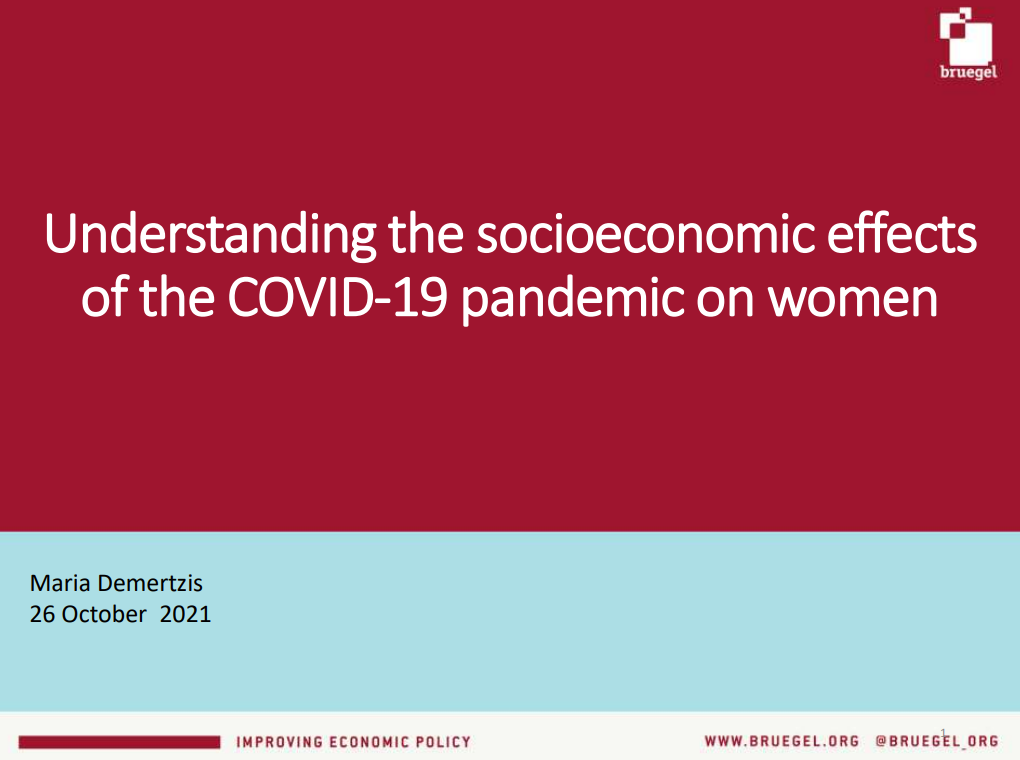Blog Post
Lockin’ tax haven’s door
Tax avoidance and evasion harm the public coffers, and increase inequality and poverty. This post summarises the recent debate on several aspects of the issue: the update of the European blacklist of tax havens and the related recent report from Oxfam, a call for reform of international taxation by the IMF, and the request for IRS reform by US democratic senators.

With this tweet, Pierre Moscovici celebrated the update of the European Union’s blacklist of countries considered as fiscal paradises. On March 12th, Ecofin ratified the decision to add 10 new countries to the EU blacklist of non-cooperative jurisdictions, which now counts a total of 15.
On February 27th, at the Bruegel event ‘Reforming decision-making for EU taxation policy’, Commissioner Pierre Moscovici said that, in his experience, a game-changer for tax changes is public opinion. The blacklist was put in place by Ecofin in December 2017, in response to the several scandals that have notably raised public interest in the days immediately after the leaks – as we can see in the following chart, based on Google Trends.
In 2017, the EU began a process of evaluation of countries’ taxation regimes, in which it compiled a blacklist and a ‘grey list’ of jurisdictions cooperating to different degrees. The rationale of the lists is to push countries to reform their fiscal systems.
One motivation for the increased scrutiny from the Commission is the wealth held in tax havens. Zucman 2019, estimates it at 10% of world GDP across countries, and finds that the figures for wealth inequality in Europe can substantially increase when using new data sources (e.g. leaks from financial institutions) to ameliorate the estimates for rich households. Richard Murphy estimated a European tax gap of €825 billion per year, resulting from domestic tax evasion. In an older paper (Zucman 2014), the estimated lost tax revenues (accounting only for financial wealth) was $200 billion per year, globally, with a stock of around $7.6 trillion at the end of 2013. In Europe, the number is $75 billion per year.
The estimates are confirmed by the OECD (Owens 2007), but are also quite consevative compared to other studies, as they only consider financial assets. Indeed, Palan, Murphy, and Chavagneux (2010) estimate global offshore wealth to be $12 trillion and Henry (2012) between $21-32 trillion for 2010. Alstadsæter et al. (2017), found that 90-95% of the hidden wealth is owned by the richest percentile of society and Alstadsæter et al. (2018)show that the richest 0.01% of households is evading a quarter of their taxes.
Given the high stakes, wealth taxation and tax evasion has triggered significant debate. Oxfam in a report welcomes the EU list but criticises the weakness of this measure. In particular, the reaction of Chiara Putaturo (Oxfam’s EU policy advisor on tax and inequalities) highlights that: “EU governments have let five of the world’s worst tax havens off the hook and put the credibility of the whole blacklisting process at risk.”
Will such lists make the countries eventually comply? According to Konrad and Stolper (2016), the choice of whether or not to comply is determined by the coordination between the tax haven and the investors (who guarantee a stream of revenue) and the cost of international pressure. Oxfam indicates that the strong deterrent effect of the grey list, which forced high-level political commitments in order to avoid being blacklisted, while the blacklisting has proved ineffective.
Looking at the broader picture, Christine Lagarde argued in the Financial Times for an urgent overhaul of the system: “The public perception that large multinational companies pay little tax has led to political demands for urgent action.” The column quotes a new IMF paper, published on March 10th, that examines the international tax system, with the objective of resolving the harmful effects of tax avoidance and evasion.
Lagarde’s proposal was welcomed by the chief executive of Tax Justice Network (NGO), Alex Cobham, despite several criticisms on the timing and about destination-based cash flow tax. This new paper, signed by the IMF’s board, also focuses on the detrimental effects on public finances are particularly pronounced, as the need for revenues are more pronounced to achieve economic growth, as also recently delineated by the Economist.
On the other side of the Atlantic, the debate around tax fairness has also seen developments. In a letter published on March 8th, some of the most influential Democratic senators expressed the urgent need for more funding for the Internal Revenue Service (IRS), to achieve stronger enforcement efforts in tackling tax crimes. The IRS, in fact, estimated the average annual tax gap to be $458 billion for the years 2008-2010.
On the New York Times, Brad Setser points out that Trump’s tax reform will not solve the harmful effects of profits shifting, without closing the system of loopholes or applying a global taxation system.
Richard Murphy estimated a $1 trillion dollar tax gap for the EU, as per the Financial Times, in February: “If you look at the whole tax gap, which is the total of tax unpaid which a government thinks should be paid, it’s obvious that tax evasion is by far the biggest problem.”
Republishing and referencing
Bruegel considers itself a public good and takes no institutional standpoint. Anyone is free to republish and/or quote this post without prior consent. Please provide a full reference, clearly stating Bruegel and the relevant author as the source, and include a prominent hyperlink to the original post.














